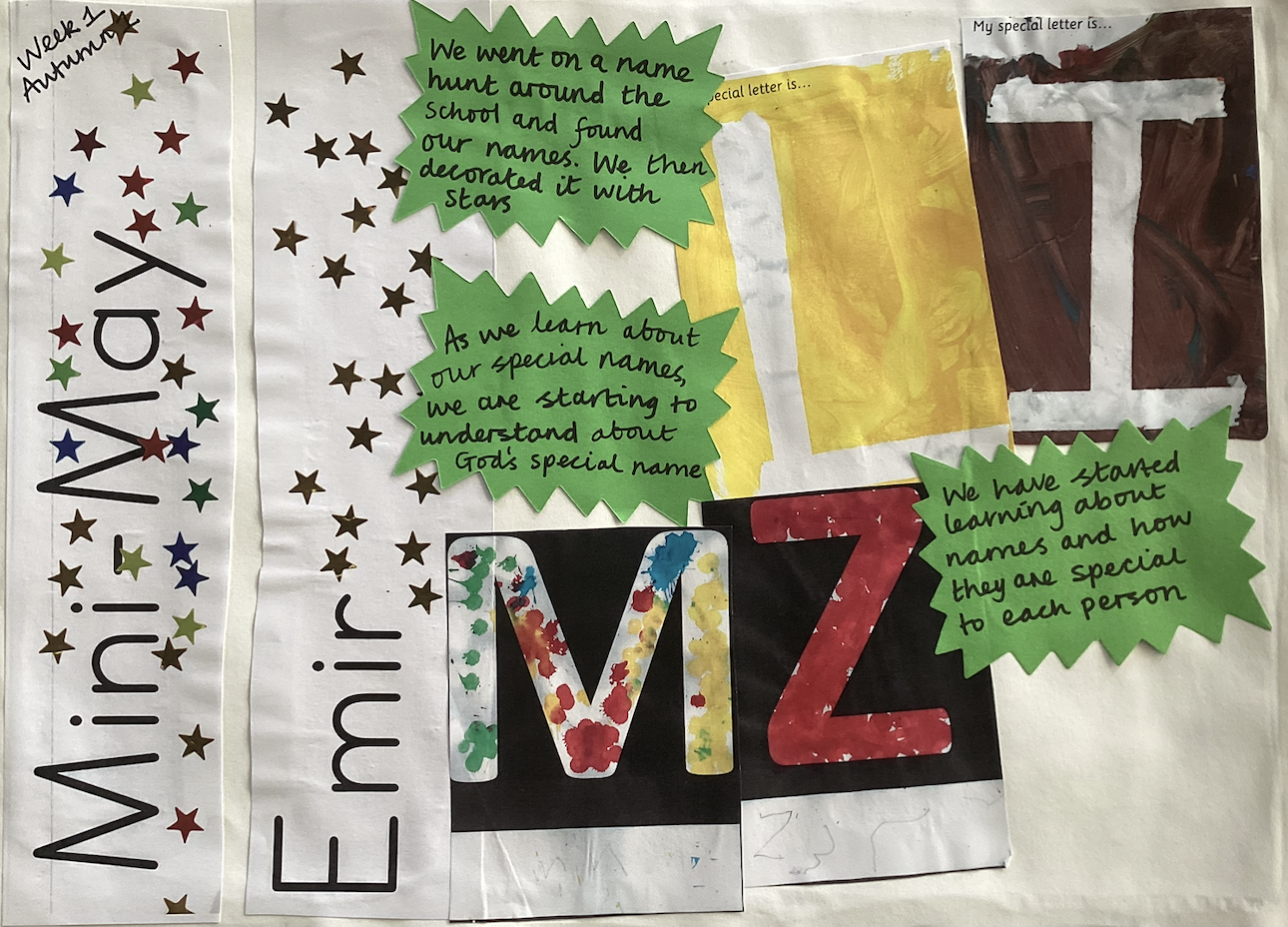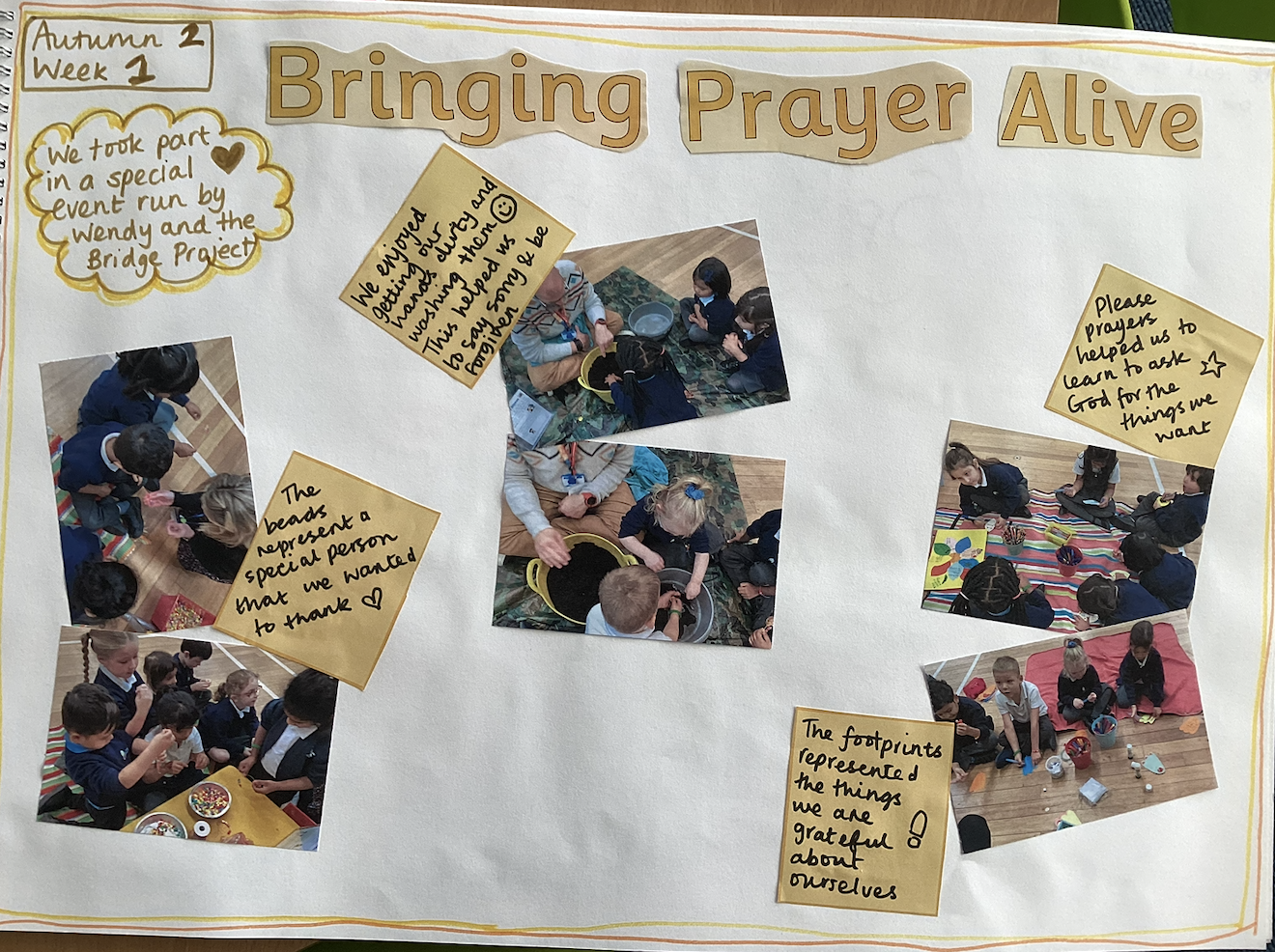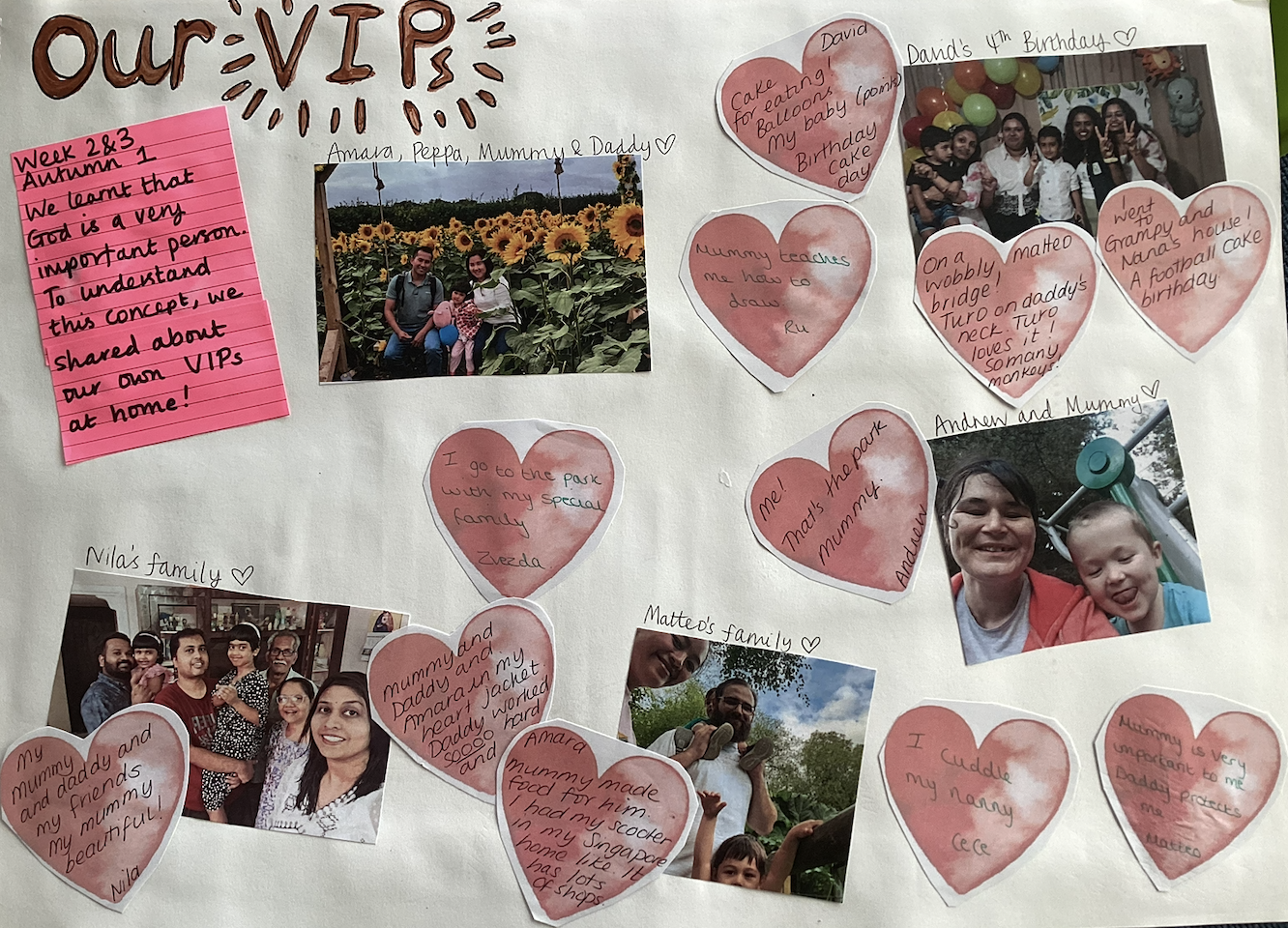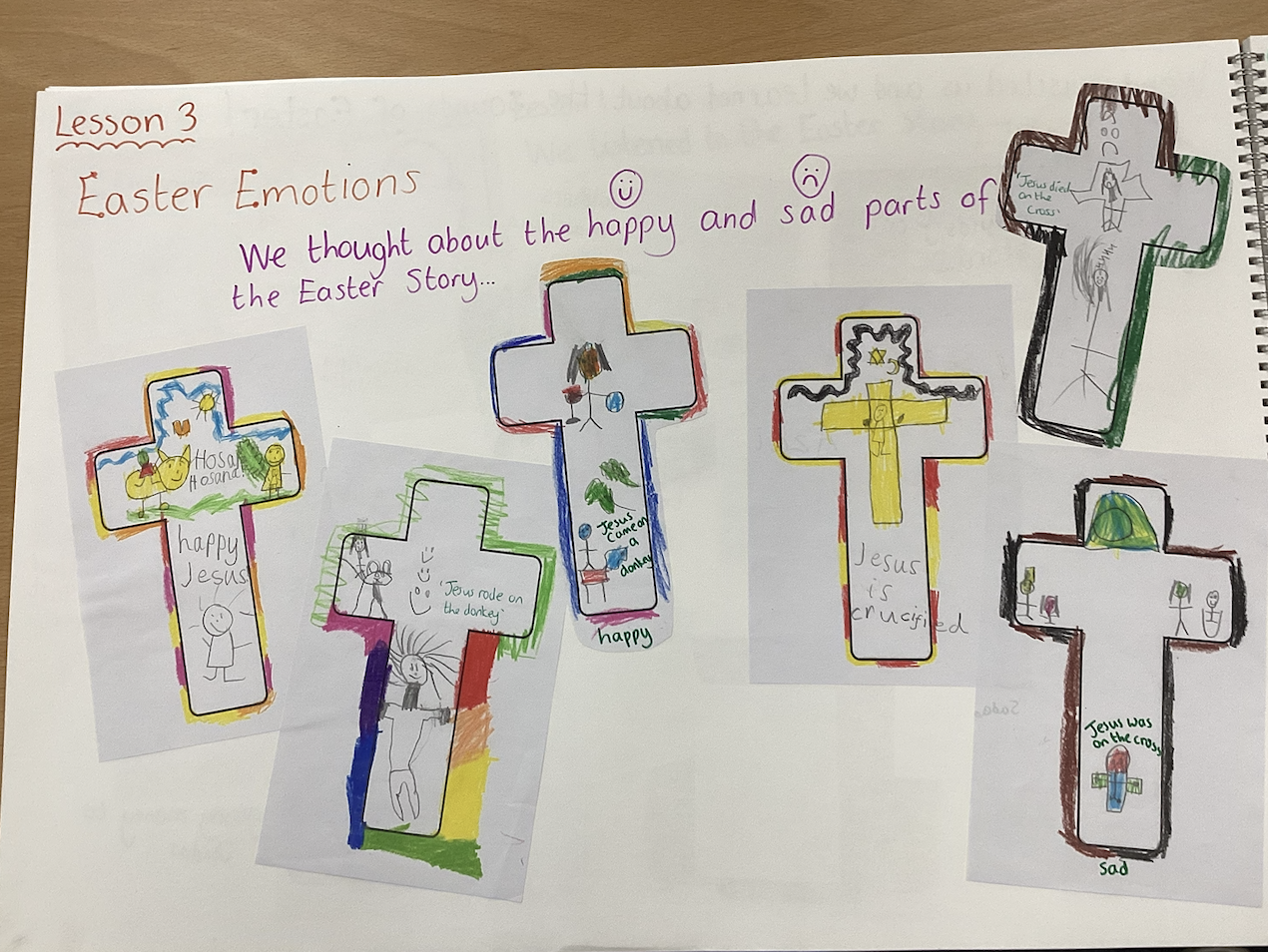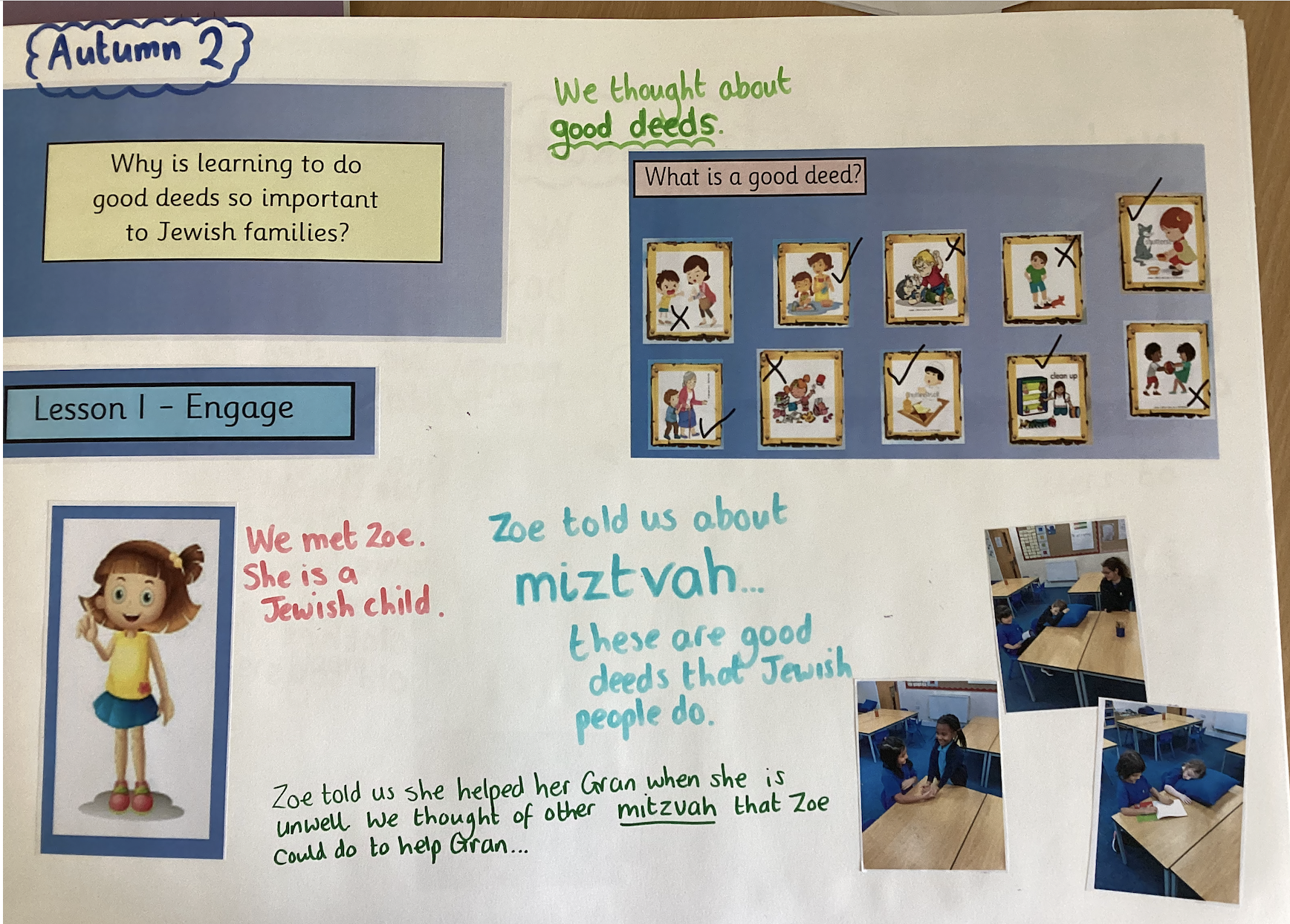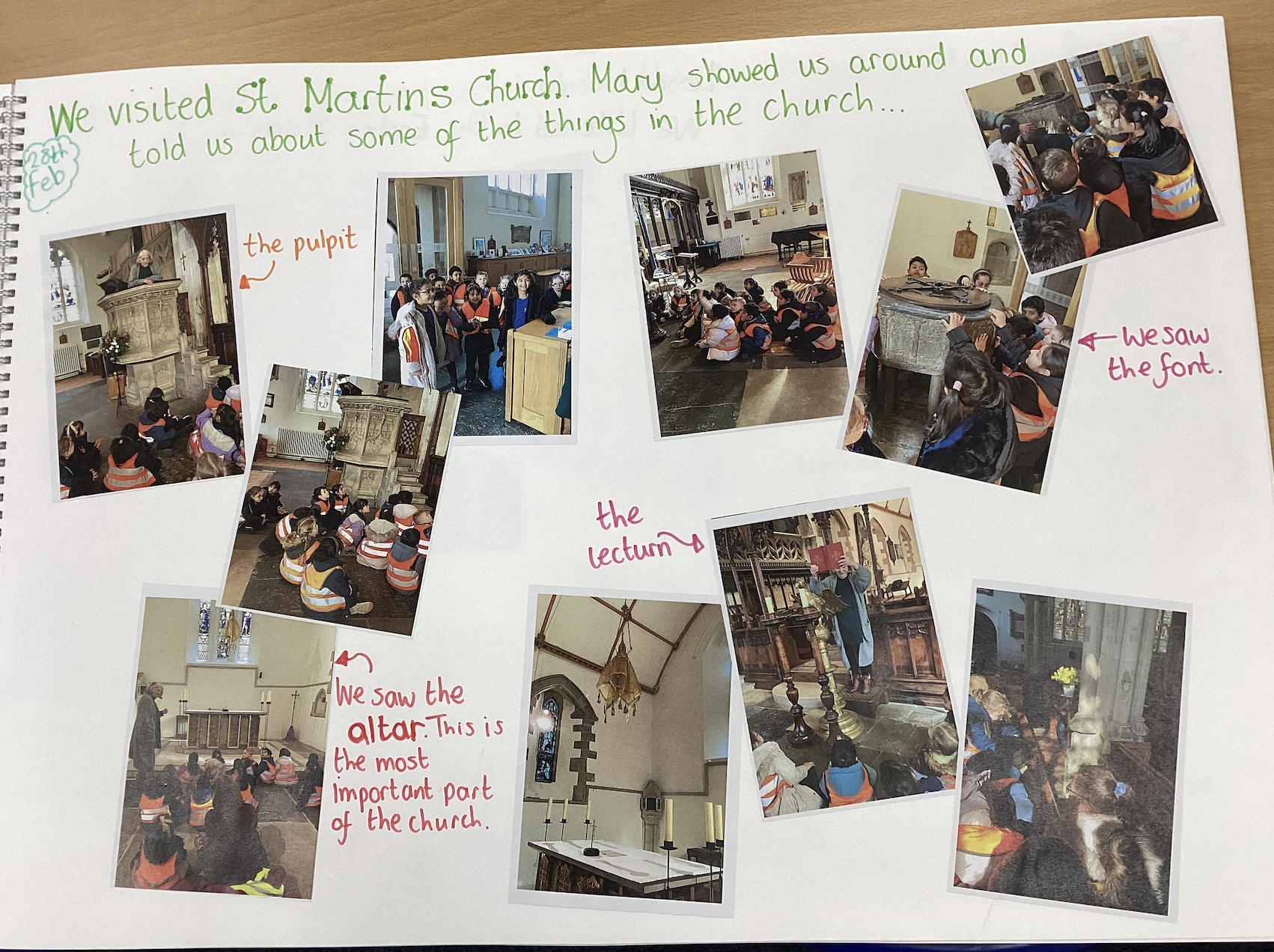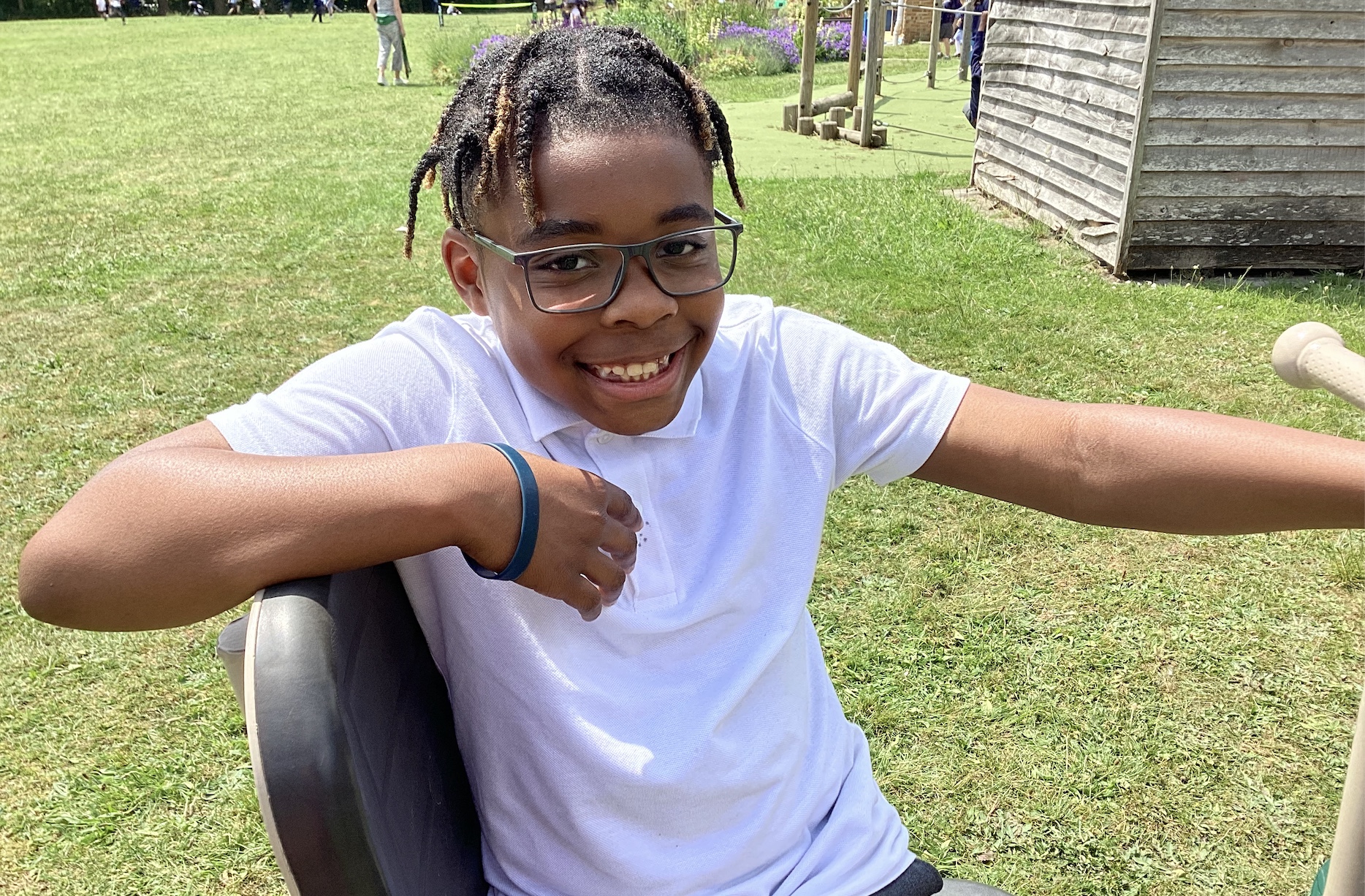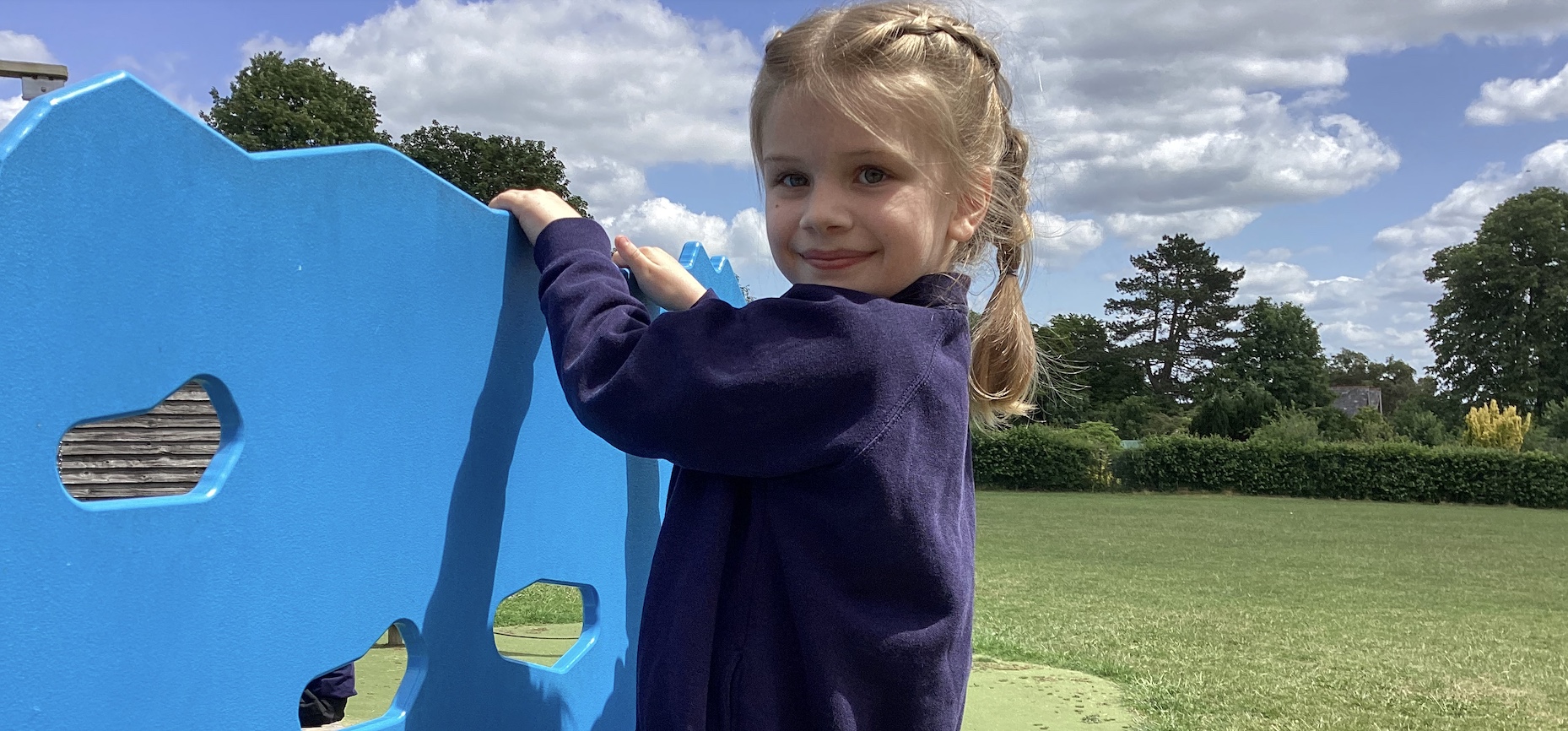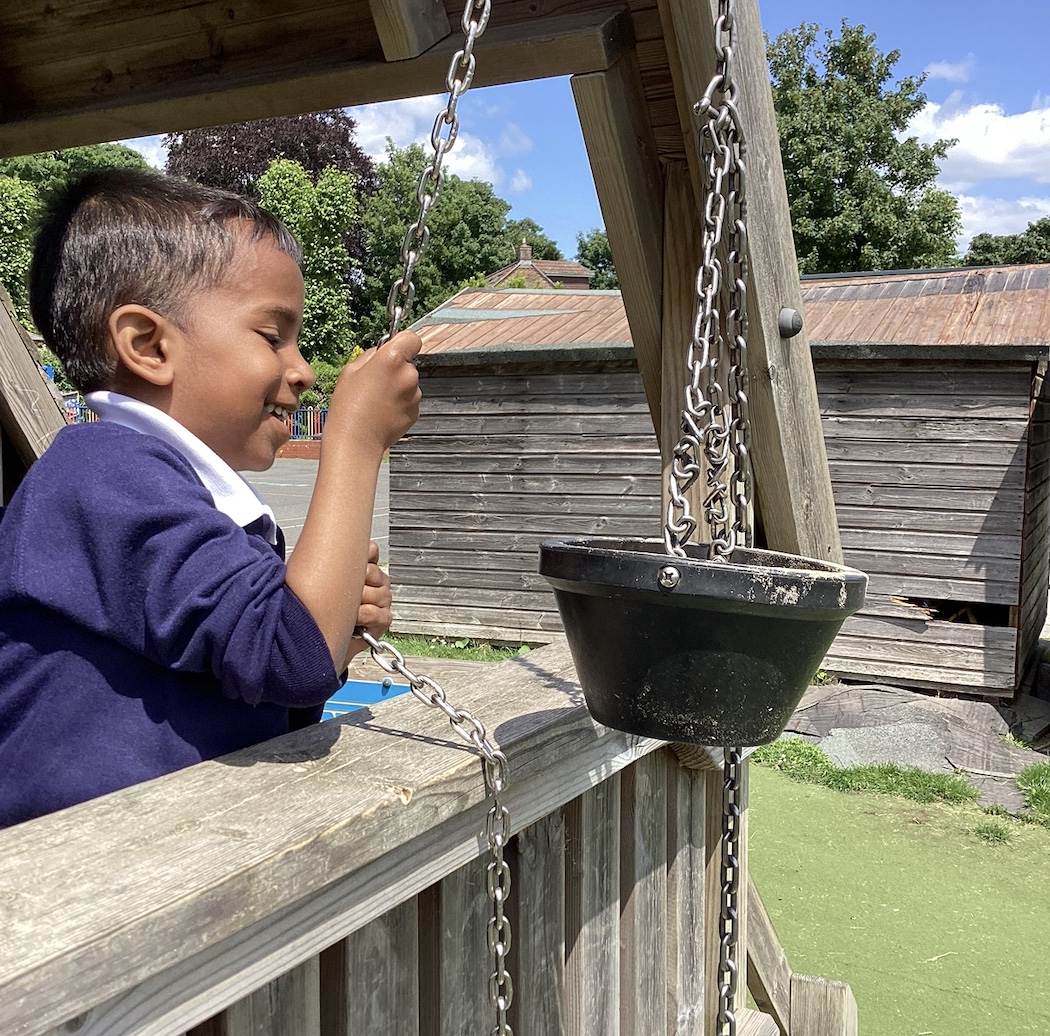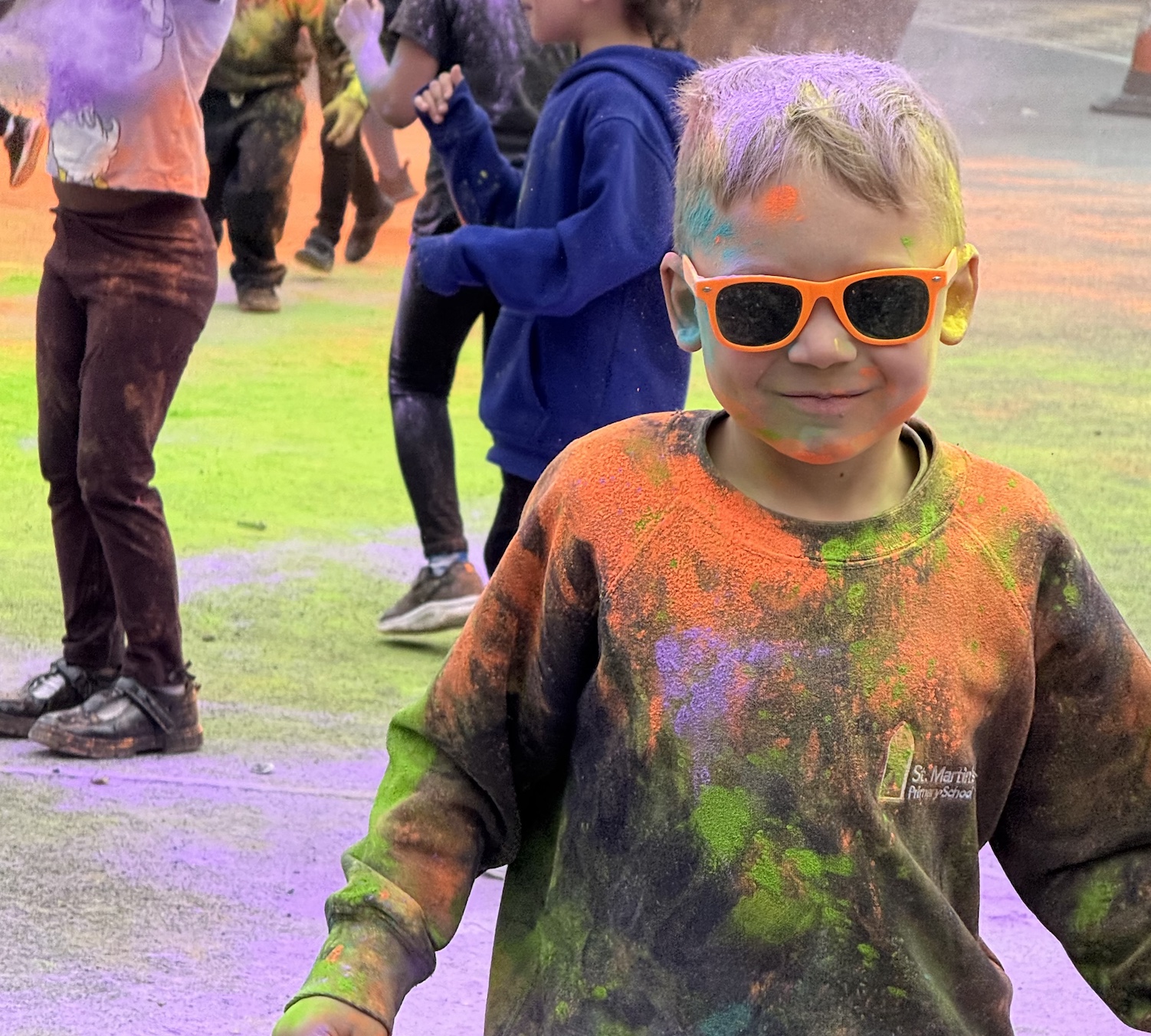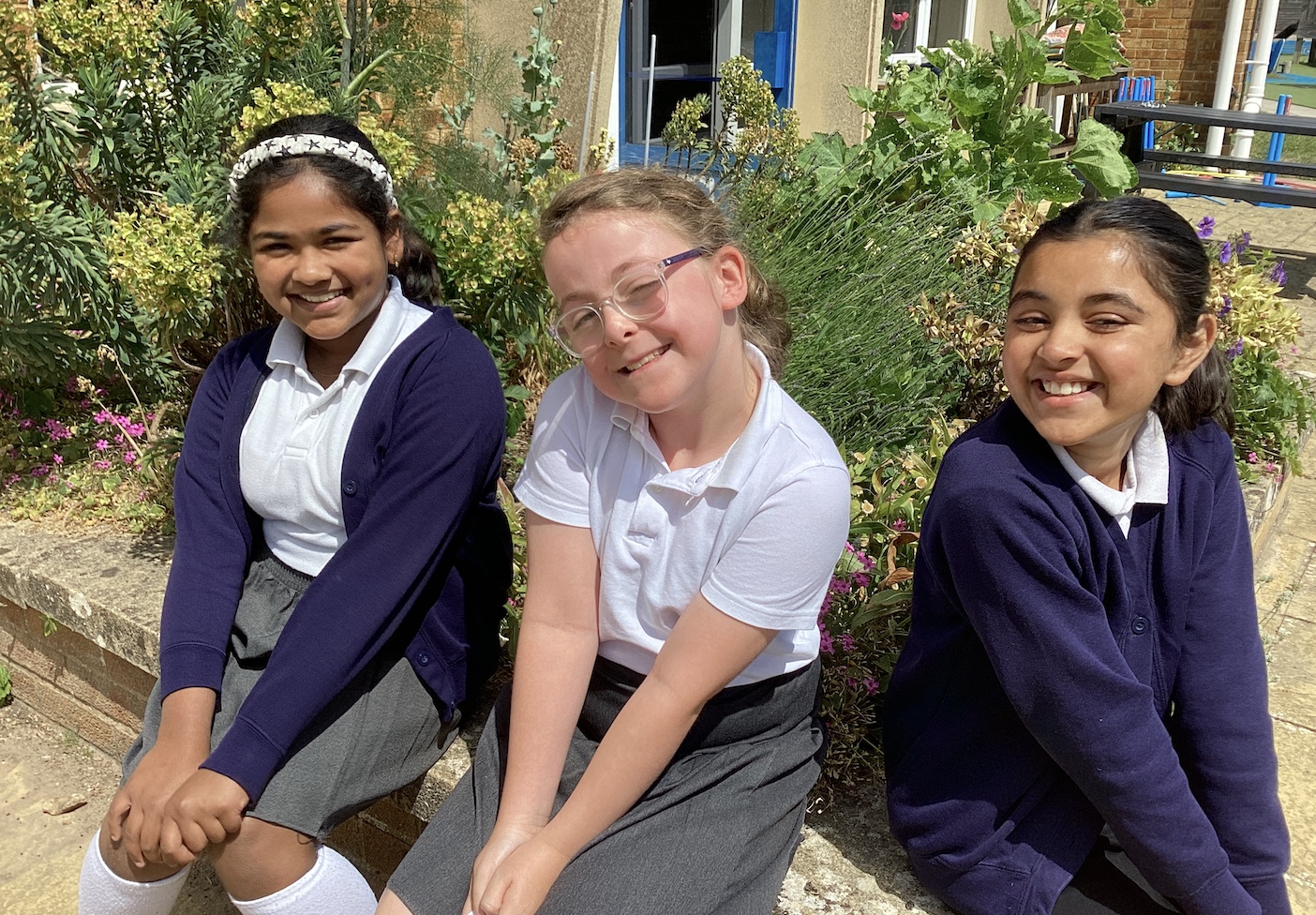Religious Education
Intent
St Martins has a high-quality sequential religious education curriculum which is given the status of a core subject within our school. The RE lead is an experienced subject lead who is also responsible for the development of our whole school vision and values, collective worship and spirituality which ensures cohesion across all aspects of life at our Church school.
We believe that the teaching of Religious Education gives our children a vehicle to communicate about themselves and others and gives them the tools to be courageous advocates. The core RE curriculum returns social power to those who may be in need of it - there is equality in having a shared, knowledge-based language. Religious Education teaches all stakeholders what it means to belong, finding shared values, beliefs and knowledge that underpins the whole primary curriculum - and beyond.
Our curriculum covers a range of modern religions, with Christianity being taught 50% of the allotted time and Islam, Sanātana Dharma, Humanism and Judaism making up the other 50% of curriculum coverage. The RE curriculum is intrinsic to the school’s vision and (alongside the Personal Development curriculum) ensures that all pupils are given the opportunity to engage in meaningful and informed dialogue around their own and global issues and are prepared for the opportunities, responsibilities and experiences of life in modern Britain.
Our RE Curriculum intersects with many other aspects of our Church school, including:
Implementation
Our curriculum was built alongside other core subject leaders as part of a large-scale project run by our academy trust and the RE steering team within it. The design has been informed by best practice as gathered through regular monitoring and evaluation across a wide range of schools. This ensures that our RE lead can confidently know that our curriculum is accurate, well-sequenced and well-balanced.
At a school level, our curriculum has been interrogated thoroughly to ensure it is relevant and reflects the diverse range of cultures, religions and countries of origin within our school cohort. Where needed, the RE curriculum is supplemented by our Personal Development curriculum to ensure the needs of our children are being met. A recent example of this was how we built on our connections and world views disciplinary concept through a whole school theme marking World Refugee Day – an important piece of learning representing the unique needs of our cohort.
How is a RE unit structured?

Substantive Knowledge - Our Big Ideas
The substantive knowledge within the RE curriculum is hinged around 5 big ideas, which can be applied across each religion studied within KS1 and KS2. Each academic year works through the big concepts from Creation to Afterlife sequentially, ensuring our curriculum’s key substantive knowledge is taught logically and able to be revisited as it is anchored to recurring big ideas.

Pupils are supported in understanding how the big idea of, for example, creation, is seen throughout each religion/world view studied. Each child’s RE learning journal is broken up into these 5 big ideas and stays with the child from Year 1 through to Year 6. This ensures that they are able to quickly return to each big idea from previous years, making connections and comparisons easy.
The key substantive knowledge is kept on an RE curriculum document so that staff know exactly what has been taught and where links can be made with prior knowledge.
Children are supported in recalling the key substantive knowledge by the use of generalisations. These key generalisations at the end of each unit ensure that a small piece of well understood and thoroughly explored substantive knowledge can be applied in a range of challenging ways – across different faiths, across different big ideas and across different religious sects. This builds in challenge throughout each RE unit. The learning tasks in each lesson incorporate a well-balanced range of activities including debate, drama, exploration, and questioning, time for thought and reflection is built into every lesson with questioning carefully crafted to promote deep thinking.
Disciplinary Knowledge - Key Concepts
Alongside a rich, deep substantive knowledge, our curriculum also includes the vital disciplinary knowledge needed for children to be able to understand the way that philosophers, theologians and social scientists know and engage with this subject. Through using the disciplinary knowledge that has been directly taught, pupils have a safe space to explore their own religious, spiritual and/or philosophical ways of seeing, living and thinking, believing and belonging. They are also able to apply their disciplinary knowledge as a tool to help embed key substantive knowledge and complete key learning tasks.
Our disciplinary concepts are deliberately inter-faith, and intended to be built on and applied throughout seven years of education. For example - where pupils may be novices in regards to newly-introduced substantive knowledge about a religion, they are able to apply their disciplinary knowledge at a more advanced level to enquire, analyse, interpret, evaluate and reflect.
Our disciplinary concepts are:

Impact
The impact of our curriculum is measured in the children's ability to answer key "exit task" questions using their substantive knowledge and their ability to skilfully utilise their disciplinary knowledge to approach tasks as a social scientist, philosopher or theologian.
It is also seen in many other ways, such as:
Through their participation in and understanding of class worship or whole school festival days.
The way they act, treat eachother, respect difference and build a community.
Their development of a whole-world view and their role within it.
The governing body monitor the provision, profile and priority of religious education thoroughly, through 1:1 conversations with the RE lead, pupil conferencing and spending time in classrooms. Our school chaplain is a member of our governing body which ensures that key messages and priorities are being fed back to all stakeholders. Religious education is part of a 6x year update given at our governing body meetings.
KS1 and EYFS Floor Books
